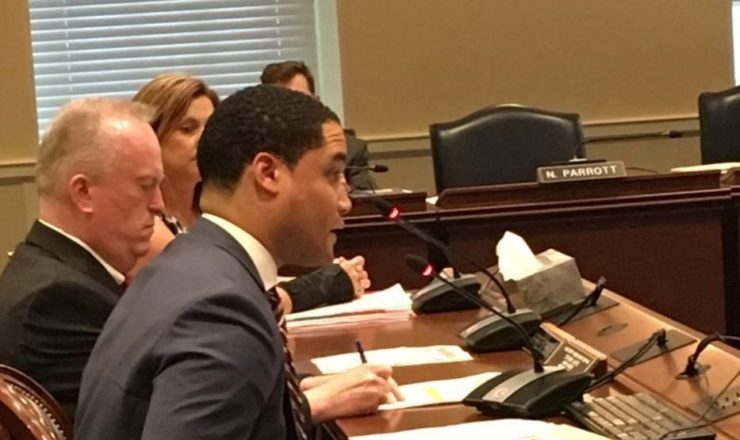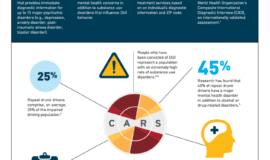Countermeasures to High-Risk Impaired Driving
Death notifications. In nearly 20 years of law enforcement, I have been often reminded why they are my least favorite call type. The worst death notifications are those that could have been avoided – easily avoided. A $12 cab fare, or rideshare, could have prevented countless visits to an unsuspecting family member with news that their loved one would not be returning. I am hopeful for a day when that knock doesn’t come to anyone’s door. But for now, multi-substance impaired driving is on the rise and presents an elevated crash risk. For those who refuse to rideshare and save lives, law enforcement may be the last line of protection between a high-risk driver and your family, or mine.
There are many steps in a DUI arrest, but it begins with the officer contacting a driver on a traffic stop or crash and noticing the first indications of impairment. A substantial portion of American law enforcement officers are trained to use Standardized Field Sobriety Tests (SFSTs), which help analyze observable signs of impairment and assist in making an arrest decision. Officers may also use roadside breath tests for alcohol, and in some locations oral fluid testing is available for preliminary drug screening. If a consistent body of evidence suggests the driver is impaired, the officer arrests the suspect and transports them for evidential blood/breath testing at a jail or police station. If an evidentiary breath test indicates the suspect’s alcohol concentration exceeds 0.08 g/dl, the investigation typically ends there. Learn more about why this must change.
When a DUI case is suspected to involve drugs, additional steps may be taken in agencies with further resources. If available, an officer with specialized training, sometimes called a Drug Recognition Expert (DRE), may be requested to perform a systematic and standardized 12-step evaluation to help confirm and classify the drug impairment. There are roughly 8,000 of these officers across the United States, making them a scare and valuable commodity.
Even when officers with specialized training are available, blood tests are invaluable in convicting dangerous drivers. Yet countless cases go forward without them due to driver refusals, resulting in many cases being lost – reinforcing dangerous behaviors that may ultimately cost lives. Some areas have successfully implemented programs to ensure testing of dangerous drivers by way of search warrants for blood evidence. Since evidence in blood dissipates over time, the most effective programs use electronic mediums to expedite judicial review of warrants and then have trained law enforcement phlebotomists collect blood samples to avoid delay.
If our society seeks to substantially impact the problem of impaired driving, especially in the highest-risk impaired driver population, law enforcement strategies need to be updated. Oral fluid testing, electronic search warrants, law enforcement phlebotomy, and enhanced law enforcement training are cornerstone priorities in this mission.
No single entity can move such priorities forward on a large scale. Collaboration among public and private stakeholders is vital to ridding our country of impaired driving injuries and deaths. Responsibility.org and the Governor’s Highway Safety Association have provided supplemental funding since 2014 to train nearly 3,000 additional officers across 22 states on enhanced drug impaired driving countermeasures. The National Highway Traffic Safety Association, via a cooperative agreement with the International Association of Chiefs of Police, is also actively supplementing and expanding such training and working to enhance availability of DRE’s in underserved areas. Such efforts are vital to improving roadway safety and must expand to other priority enhancements and include participation from a diverse set of prevention, enforcement, adjudication, and treatment professionals.
For more information on multi-disciplinary approaches to stop high-risk impaired driving, visit www.stophrid.org
Matt Myers is the Assistant Chief of Police in Peachtree City, Georgia. He serves on the International Association of Chiefs of Police (IACP) Highway Safety Committee, the IACP Technical Advisory Panel to the Drug Evaluation and Classification Program, and Responsibility.org’s High-Risk Impaired Driver Program expert panel, which offers top priority impaired driving solutions. He is also past-chair of the IACP Drug Recognition Expert Section, and a career law enforcement officer dedicated to making roadways safer for all.
















